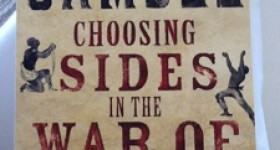Dangerous emotions in slavery
I have recently co-organised with Kostas Vlassopoulos a conference in Nottingham under the auspices of ISOS, the well known international centre for the study of slavery. The topic of the conference was Sex and Slavery and it included papers from all periods and geographical areas; it was meant to be comparative (both diachronically and geographically). The discussion was especially fruitful also because the respondents brought sometimes radically opposing viewpoints.
Unlike other conferences of this type, surprisingly, we did not focus on the Evils of
Slavery to society. We did not explore the destructive forces that this peculiar institution holds for the people who are involved. Instead, most papers analysed the variety of relationships between masters and slaves and the mosaic of emotions that arose within them. We came to the conclusion that not all of these relationships were based on violence and not all of them included perverse feelings of hate. Although we acknowledged that slavery breeds relationships based on power rather than love, there must have been some positive exceptions to the rule.
I have been wondering why did the participants of the conference focused on the exceptions and not to the rule? Why did positive rather than negative emotions seemed to be so important? It seems to me than in certain cases the debate is overwhelmingly dominated by feelings of guilty and regret. The guilt, felt especially in the United
States, sometimes overpowers discussions of slavery and sex. The result is a monolithic treatment of the topic that does not allow for the existence of a multitude of emotions, relationships, situations and outcomes. As historians, I believe, that we are obliged to acknowledge the exceptional cases and the patterns they create no matter how politically incorrect they seem to be. The Nottingham conference and its unlikely results indicated that we may be moving to a new research era in slavery studies.

